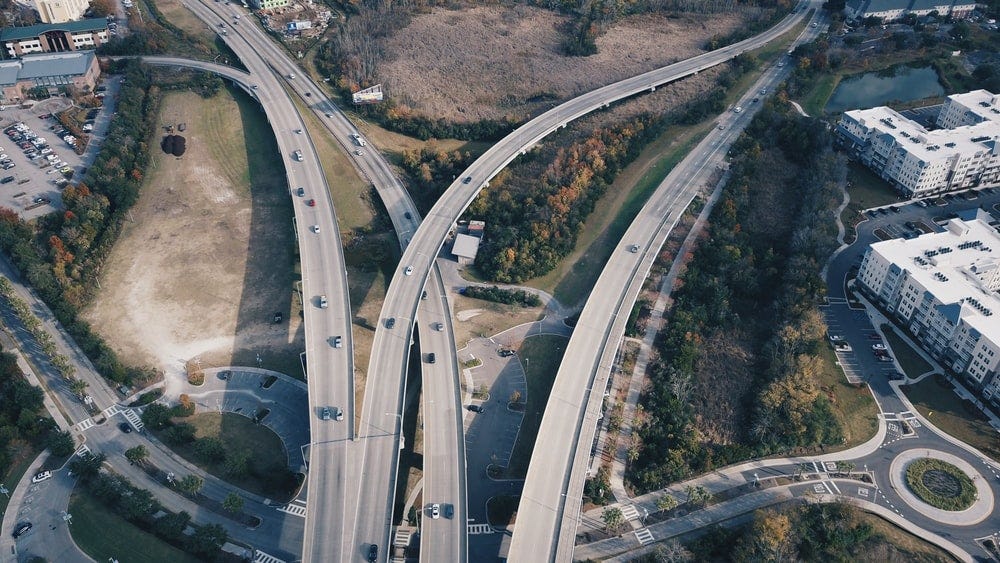If Biden calls things 'infrastructure' that aren't, isn't there a word for that? Plus, a PC update.
By Gary Abernathy
Isn’t there a word for calling things something they aren’t?

The Washington Post reports that “a bipartisan group of 10 Senate Democrats and Republicans reached a new deal on infrastructure on Thursday, agreeing to a nearly $1 trillion, five-year package to improve the country’s roads, bridges, pipes and Internet connections… But it remains unclear if the early accord will prove to be enough to satisfy either the White House or a sufficient number of lawmakers on Capitol Hill at a time when disagreements between the parties are rife.”
Unlike what some Democrats in Washington think, President Joe Biden is right to make infrastructure a focus of his administration. Our nation’s roads and bridges have been neglected for far too long. Every local county engineer can tell you how dangerous things are. Just doing makeshift repairs to avoid closing down bridges keeps state and local highway workers busy.
The problem is Biden’s effort to fund other pet projects under the definition of “infrastructure.” Most people are willing to lump broadband internet with more traditional infrastructure. That makes sense in the modern age. But Biden’s decision to lump other things under the infrastructure umbrella goes too far.
The Associated Press reported back in April, “For example, strengthening the right of workers to join unions does not resemble concrete in an underpass.” And Biden “proposes $400 billion to expand access to long-term, home and community-based care services. And he’s got an estimated $400 billion for clean energy, never a Trump priority… There’s also $590 billion for somewhat vaguely defined job training initiatives and research and development.”
Some, or all, of these might be worthwhile projects. Or they might not. But none of them are “infrastructure,” despite the best efforts of Biden and those who agree with him to spin it as such. That’s the challenge that was faced by Sen. Shelley Moore Capito (R-WV) when she was leading GOP negotiations with Biden, and that’s the problem the coalition of 10 Democratic and Republican senators will have selling the new proposal to the rest of Congress. If billions of dollars remain in the package dedicated to things outside of traditional infrastructure, it’s a no-go — as it should be.
Biden needs to sell his initiatives in an honest and upfront manner, not by renaming and repackaging things — which, had that been done by Biden’s predecessor, would have resulted in the media saying it was another lie.
From the PC file: Is it ‘special needs’ or ‘disabled?’
In our daily lives, we may encounter phrases like "I am disabled" or "My child has special needs." And to someone who is not part of the community, this wording may seem synonymous. But it's not. Most experts and advocates vehemently oppose the term "special needs," and believe we need to eliminate it from our vernacular. Furthermore, they say avoiding the term "disabled" only leads to stigmatization. For some, the term "special needs" feels offensive. "I am disabled by society due to my impairment," says Lisette Torres-Gerald, board secretary for the National Coalition for Latinxs with Disabilities. "My needs are not 'special;' they are the same, human needs that everyone else has, and I should be able to fully participate in society just as much as the next person."
I can remember when we were all encouraged to abandon the term “disabled” or “handiicapped” and move to “special needs” or even the more Orewellian “differently abled.” We should all be sensitive in how we refer to people who face physical or mental challenges most of us don’t face. But there’s also value in describing things correctly, rather than making up terms that may sound kinder or gentler, but are not really accurate. So now the wheel appears to have done a complete 360 on “disabled.”
The USA Today story reports that Lawrence Carter-Long, communications director for the Disability Rights Education & Defense Fund, says the word disabled “connects members of the community to each other, our common history, and to the lineage of all those who fought, protested and persisted so that one day we could be proud of disability history too."
The story reports that Torres-Gerald claimed there is power in the word disabled. She said, "I am not ashamed to be disabled; I consider it a difference that allows me to view the world in a different way than other people." Good attitude.
So that’s where we are today. Have a great weekend!
Sign up or share this newsletter
Please sign up to receive this newsletter directly into your inbox Monday through Friday (except holidays or other occasional interruptions) or, if you are already a subscriber and reading this by email, share with a friend using the convenient button below. Thank you!


